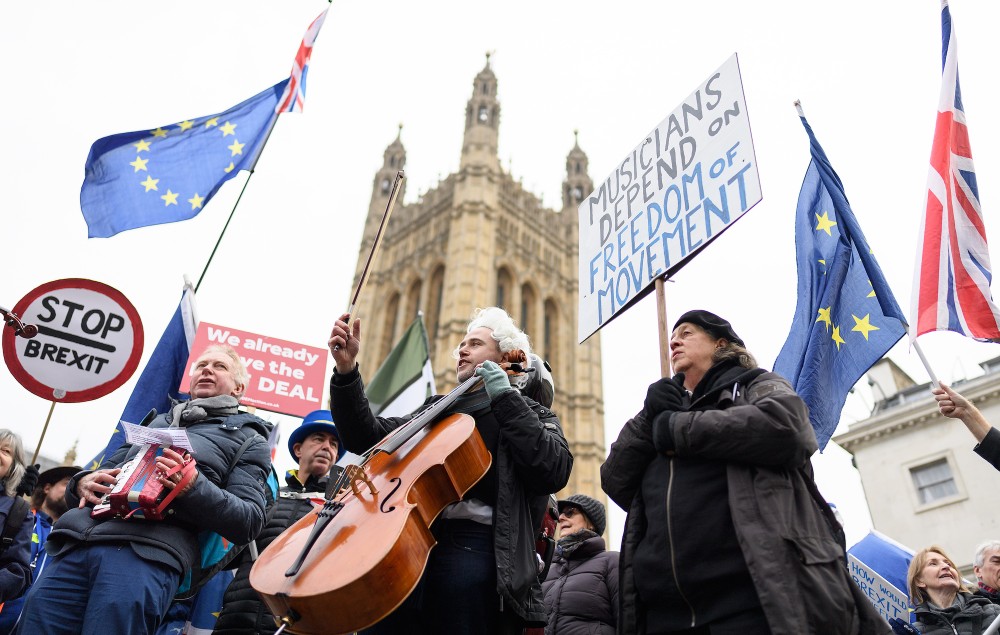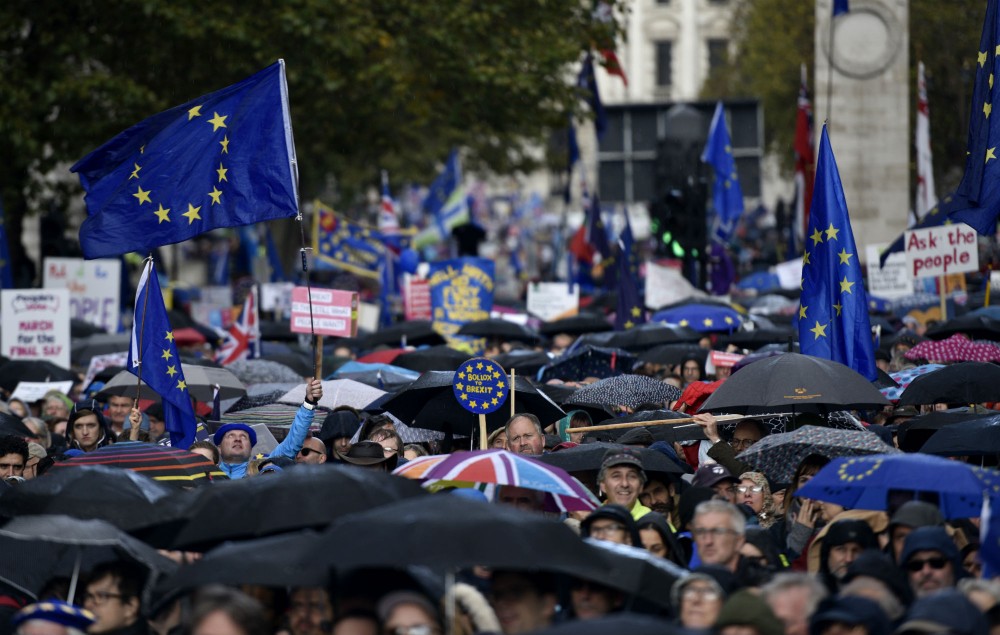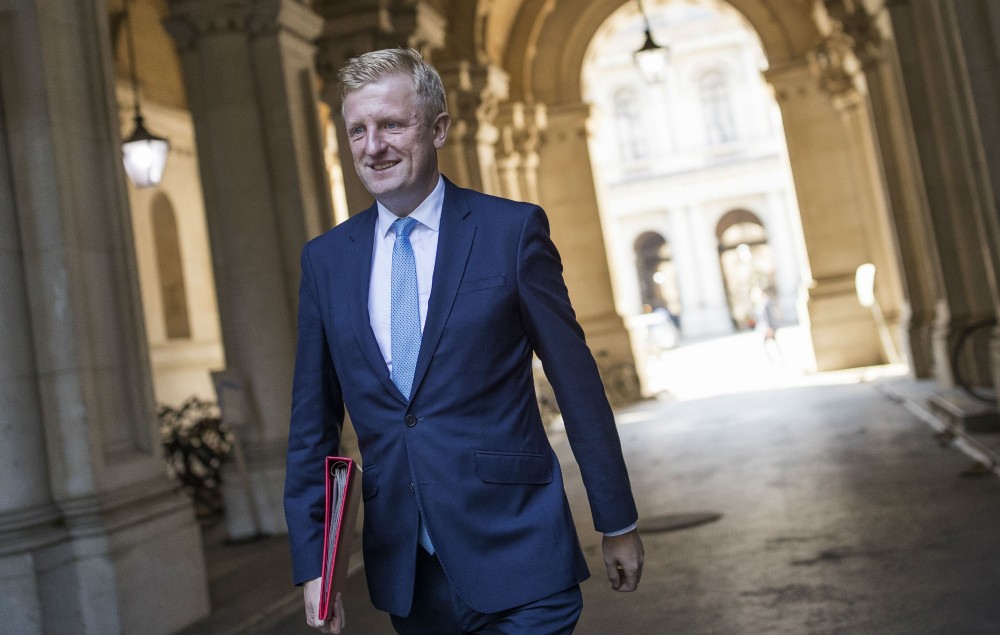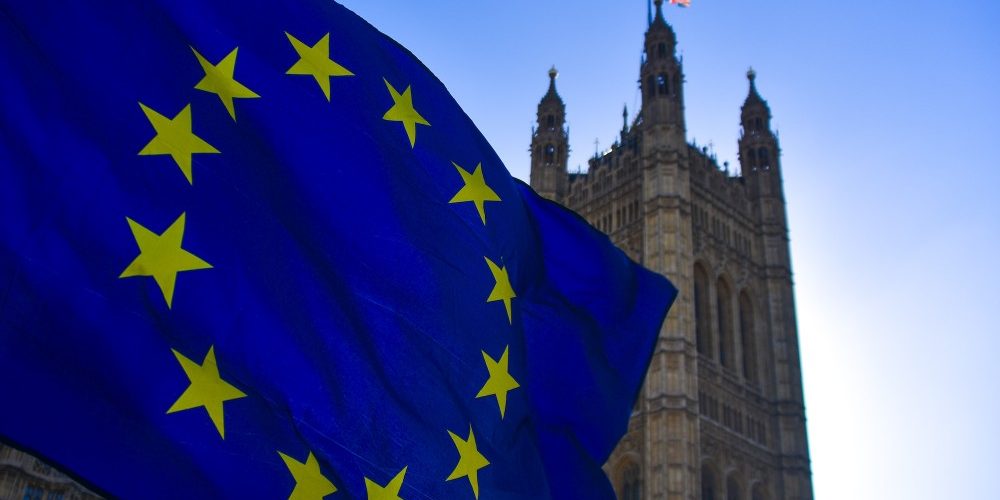EU responds to UK government’s claim that they rejected “ambitious” visa-free Brexit deal for touring musicians
The European Union has responded to the UK government’s claims that they “rejected their ambitious proposals” for visa-free travel for touring musicians and “letting down music on both sides of the Channel”.
Prime Minister Boris Johnson has vowed to meet with MPs to discuss the ongoing uncertainty surrounding the impact of Brexit on touring musicians from the UK, with the arrangements of his recent trade deal not yet securing visa-free travel for artists and their crew.
Without the implementation of these ‘Musicians’ Passports’, it is feared that huge costs to future live music tours of the continent will be incurred – which would especially prevent rising and developing UK artists from being able to afford to tour, creating a potential “glass ceiling” and threatening the stability of the UK’s £5.8billion music industry.
Earlier today (January 13) Culture Secretary Oliver Dowden put the blame for this at the foot of the EU following reports that a “standard” proposal that would exempt performers from needing a visa to enter countries in the EU for trips under 90 days was actually turned down by the UK government. Now the EU has responded to claim that this is not the case.

It is claimed that the UK refused to discuss both long and short term mobility, including a reciprocal commitment to visa-free short-stay travel and a joint list of paid activity exemptions. The EU had offered visa-free and 90 days in every 180-day period legal certainty and predictability across all EU MS via a joint declaration on paid activities (exempting artists/musicians from the possibility of Member States to ask a visa for paid activities in their case) in their draft agreement last March.
The UK later offered a deal of musicians being visa-free for the much shorter period of 30 days under “mode 4” commitments with a visa being offered for longer than that, which the EU rejected. “Mode 4” means that those wishing to travel would be “neutral” to entry and stay requirements during that period, meaning that musicians and crew could still be required a visa or a work permit if EU countries would choose to do so.
“The UK has chosen to no longer allow the free movement of EU citizens to the UK,” a European Commission spokesperson told NME. “It also refused to include a chapter on mobility in the Agreement. These choices inevitably mean that travel between the EU and the UK – including for business purposes – will no longer be as easy as it was while the UK was a Member State.
“Neither the short-term business visitor category nor the contractual service supplier/independent professional categories of Mode 4 cover musicians.”

They continued: “The UK refused to include a commitment on visa-free short stays in the Trade and Cooperation Agreement. Such types of commitments in the EU’s international agreements are usually accompanied by a Joint Declaration explicitly excluding certain categories (for example, sportspersons, artists and journalists) from the requirement to have a visa. As a result, it is now up to each Member State to determine if a visa is required for short-stay visits for the purpose of carrying out a paid activity. This is fully in line with EU law.
“A list of Member States and Schengen countries which apply the ‘paid activity exception’ to the UK is to be found on the Commission website.”
They added: “Individuals who consider that their visit may fall under the ‘paid activity’ category are strongly advised to check with the consular authorities of each Member State to see if a visa is required before their visit.”

Providing a comment to NME earlier today, Mr Dowden doubled down on claims that “some of the reporting has been inaccurate”, while arguing that “your Government fought to get a good deal for British music precisely because we recognise how valuable this industry is to the country”.
Elaborating on the “more ambitious agreement” that they pushed for, he said: “We sought a mutually beneficial agreement that would have allowed performers to continue working and perform across the continent without the need for work permits. Musicians, artists, entertainers and support staff would have been captured through the list of permitted activities for short-term business visitors. This was a straightforward solution for our creative industries which would have benefited all sides.
“But the EU turned it down, repeatedly. It did not propose and wouldn’t accept a tailored deal for musicians and artists. I’m afraid it was the EU letting down music on both sides of the Channel – not us.”
Mr Dowden added that while the “outcome is regrettable, it doesn’t have to be final”, and encouraged further negotiation in order to “make it as straightforward as possible for UK artists to continue putting on performances across the continent”.
“The treaty we negotiated has a review clause that allows us to revisit the list of permitted activities for short-term business visitors, but we shouldn’t have to wait for that if both sides can agree sooner to do the right thing for our talented artists,” he continued. “I’ll be making that point to my counterparts in Europe and I hope they change their minds.”
Read his full statement here.

Arguing that visa-free travel for artists and crew was mutually beneficial for both the UK and the EU, music industry bosses spoke out to claim that there was now “no excuse” for not finding a solution.
This week has also seen music industry insiders amplify their fears that the current Brexit deal could also prevent UK artists from being able to play in the US, claiming that if talent is unable to acquire “international recognition” through the usual channel of playing neighbouring European countries with ease, then this could make them ineligible for a visa.
- READ MORE: “It’s going to be devastating” – here’s how Brexit will screw over British touring artists
Having attracted support from the likes of Foals, Dua Lipa, Biffy Clyro, Tim Burgess, Garbage and many, many more while surpassing over 250,000 signatures, the “Europe-wide visa-free” petition will now be considered for a debate in Parliament – while music fans are still being encouraged to sign it as well as write to their MP.
